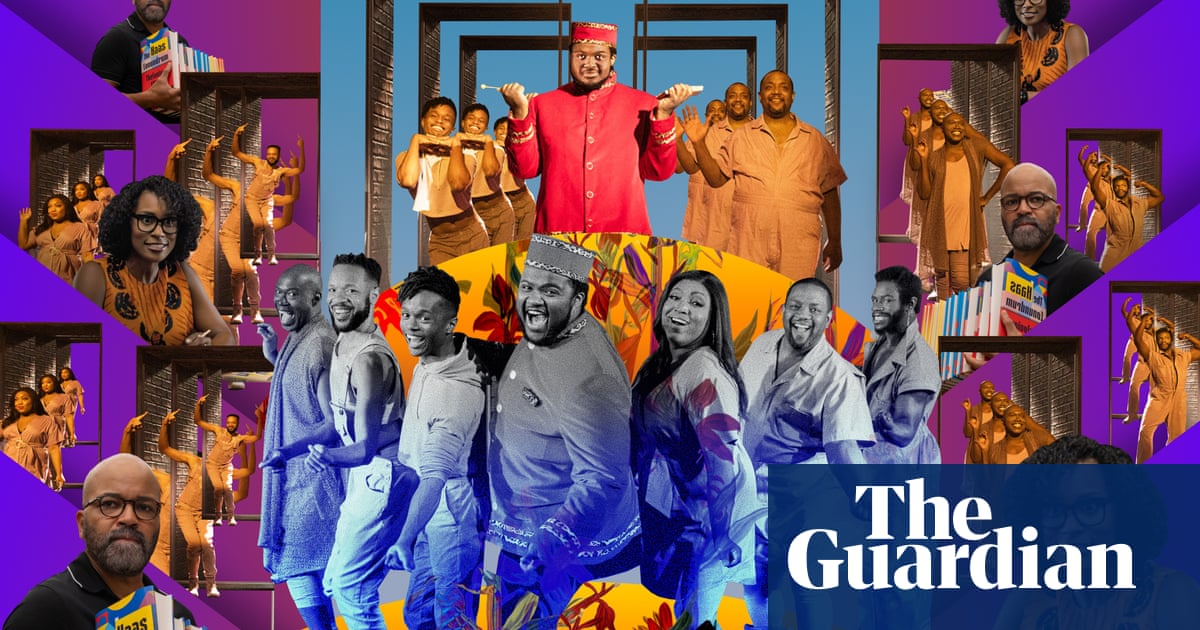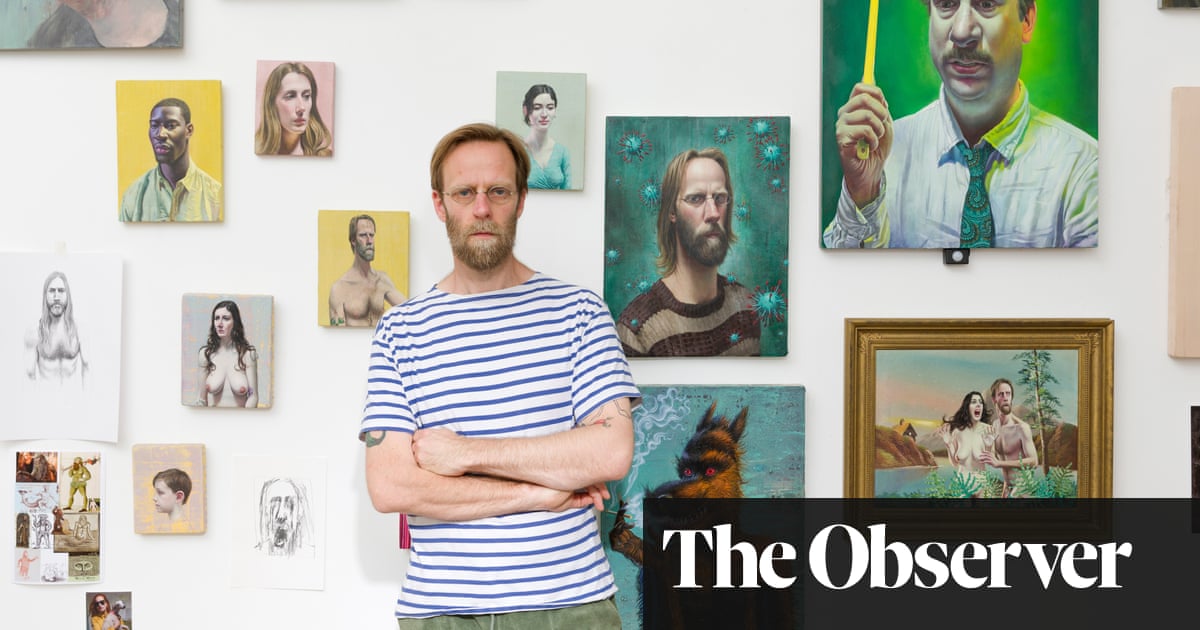
Officers storm a ballroom, releasing a flurry of bullets that pierce through a Black man as he collapses in a pool of his own blood. Monk, American Fiction’s neurotic protagonist, is unarmed, clutching nothing more than an ill-gotten literary award. It could end here. Yet – spoiler alert! – in the final act of the recent Oscar-winning film its writers take us along for the ride as they toy with reaching for a romantic reconciliation with Monk’s disgruntled ex-girlfriend or even fading to black with no resolution.
American Fiction, an adaptation of Percival Everett’s novel Erasure, sees Monk, a middle-class Black academic, struggle to get his highly intellectual books published because they aren’t “Black enough”. In order to make some money for his family he writes Fuck, a Black working-class struggle narrative laden with violence, crime and pain. He instantly finds fame and fortune and is embraced by the cultural elite, who think he’s brave for being so authentic.
The film joins a class of recently lauded Black projects that are explicitly self-conscious. The term “metafiction” describes a genre of art where the work draws attention to itself as an imaginary tale. Whether it’s by breaking the fourth wall, zooming out and showing the set, or putting a story within the story to show the construction of narratives, these works across literature, television or cinema are characterised by an acute sense of self-awareness.
Last month, Michael R Jackson received an Olivier nomination for A Strange Loop, which has already won two Tonys and a Pulitzer in the US, for its fresh take on musical theatre. Chasing its own tail, the play follows its Black gay American protagonist, a Lion King usher called Usher, as he tries to write a play about a Black gay man himself writing a play that shows what it’s like to “travel the world in a fat, Black, queer body”. Jackson says he was inspired by the 2008 play Passing Strange, an existential musical whose narrator frequently interrupts and interacts with the play’s Black American protagonist and other characters.
Similarly acclaimed is the A24 and BBC TV comedy Dreaming Whilst Black, which became a Bafta hopeful last month. In the show, writer-director Adjani Salmon plays Kwabena, a semi-autobiographical character who battles to be recognised by the film and TV industry. Now Salmon himself is receiving plaudits for his series. Also toying with metafiction is Fairview, Jackie Sibblies Drury’s play about the power and pressure of the white gaze and its impact on Black art and the Black community, which won a Pulitzer in 2019. Fairview’s first act shows a familiar suburban Black family sitcom. But in act two, voices of imaginary white audience members are overlaid on the same performance. Eventually the fourth wall collapses completely as those white audience members fill the stage and the Black characters address seated Black and POC audience members directly.
Black Metafiction is not new. The 1996 film The Watermelon Woman, the first feature directed by a Black lesbian woman, Cheryl Dunye, took the form of a fictional documentary following a woman making a documentary about an uncredited mammy figure from an old slave film, with many asides from the protagonist to the viewer. Comedy directors the Wayans brothers were fans of a more flamboyant approach to self-reference with their parodies of popular genres, whether it was Scary Movie’s Brenda lambasting the caucasian penchant for splitting up in the face of danger in horror films, or Vivica Fox in Don’t Be a Menace … critiquing the presentation of women in the 90s hood genre (“You know there ain’t no positive Black females in these movies”). And Spike Lee’s Bamboozled has a similar premise to American Fiction, with the protagonist creating a deliberately offensive minstrel TV show to illustrate how white gatekeepers and audiences make Black people perform stereotypes for their amusement. Unlike its spiritual successor, Lee’s film was dismissed as heavy-handed and flopped at the box office.
But the difference with the projects we are seeing now is that by turning the lens inward they allow us to bear witness to how hard it was to get those stories in front of audiences in the first place. “Unless you’re immensely powerful, for Black film-makers it is always more glacial and laden with struggle. You have to bypass a lot of obstacles,” says Dr Clive Nwonka, an associate professor of film, culture and society at University College London. “This meta-fictional approach in popular Black cinema is unpeeling the absurdities and contradictions of representation.”
Salmon says he created Dreaming Whilst Black as an emotional response to feeling “crazy” while trying to get his ideas on to television screens. “You think: ‘Is it just me?’” he says in a phone call. At times you can see Kwabena wondering the same thing as he has increasingly surreal experiences of microaggressions, moral quandaries and self-doubt. “When I made the web series it was like: ‘This is what I think about the industry, I’mma tell all of you about yourselves,’” he adds.
The pathos of these new meta projects lies in the ability of Black creatives to layer the story with sympathy for themselves. Jackson says that A Strange Loop was initially a monologue he didn’t intend to publish. “It was for me. An artistic fictionalised self-portrait: a funhouse mirror with a narrative, aesthetic, formal distance – more anti-establishment,” he says, speaking over the phone. If your day-to-day is navigating restrictive systems and ideologies, creating art that allows you to experiment and lash out can be cathartic.
“Everyone in the audience has to deal with what’s on stage, and with each other, and then with what Usher wanted you to feel,” Jackson says. “A delirious joy and terror because that’s how he feels as a young, fat Black gay man in a world that is not so kind to him.”
Class and white approval is an inescapable layer within these meta-explorations into which Black narratives get funded and commissioned. But meta elements and turning the lens inwards allows Black creatives to reconnect with their community and show what they’ve been up against. The experimental techniques in A Strange Loop allow us to see how Usher balances his parents’ expectations (they want him to make something palatable like a Tyler Perry movie, a very Black cultural reference) with his self-image.
In Dreaming Whilst Black, meanwhile, Kwabena is asked to switch from making a project about a Windrush romance to a project that exploits Black hardships, based on his incarcerated cousin. His inner turmoil over being asked to make “another hood movie” takes the form of two hilarious apparitions: a plummy-voiced shaved-head version of himself that isn’t “tied to his roots” and a dashiki-clad Kwabena who slurs in patois: “Me ah you brudda but the version ah you who nuh bow to nuh white man.” As he betrays that more rebellious voice, he’s isolated from his community and is instead embraced by the industry sycophants who distorted his vision in the first place. In the final shot of the series, Kwabena hears “and now you’re in the industry”, before giving a bemused and bewildered look to camera, returning the viewer’s gaze. It looks like a win but given his love of community, we can sense his defeat.
“What’s driving the commissioning is the real question,” says Salmon. “I think because of the reckoning of 2020 we were talking about racism so it’s like: ‘Let’s make a show about racism,’” he says, which leads to other hilarious faux pas that Dreaming Whilst Black will reference in its upcoming second season. “The show basically writes itself,” he says
Jackson offers one last explanation for the recent proliferation of Black meta narratives. “This might sound negative but we’re in a world that encourages constant navel-gazing. There’s an incredible amount of narcissism, but like the Greek myth once you go deep enough you’re going to fall in and drown. With Black creatives doing meta storytelling I think some of us are drowning,” he laughs.
American Fiction is streaming on Prime Video; Dreaming Whilst Black is available on BBC iPlayer.












